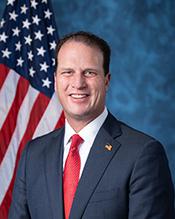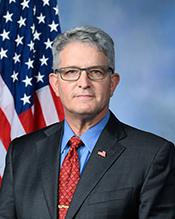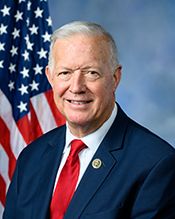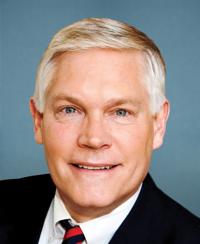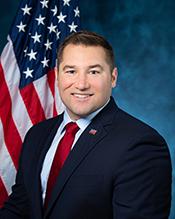0
0
0
Preventing Executive Climate Overreach Act
2/7/2024, 3:21 PM
Summary of Bill HR 3256
Bill 118 hr 3256, also known as the Preventing Executive Climate Overreach Act, is a piece of legislation introduced in the US Congress. The main purpose of this bill is to prevent the executive branch, specifically the President, from implementing certain climate change regulations without the approval of Congress.
The bill aims to ensure that any regulations related to climate change, such as emissions standards or environmental protections, must be approved by Congress before they can be enforced. This is seen as a way to prevent the executive branch from overstepping its authority and imposing regulations that may have significant economic impacts without proper oversight.
Supporters of the bill argue that it is necessary to protect the separation of powers and ensure that major policy decisions related to climate change are made through the legislative process. They believe that Congress, as the representative body of the people, should have the final say on such important issues. Opponents of the bill, however, argue that it could hinder the ability of the executive branch to respond quickly and effectively to urgent environmental challenges. They believe that the President should have the authority to take action on climate change without being bogged down by the legislative process. Overall, the Preventing Executive Climate Overreach Act is a controversial piece of legislation that raises important questions about the balance of power between the executive and legislative branches in addressing climate change. It remains to be seen how this bill will progress through Congress and what its ultimate impact will be on environmental policy in the United States.
The bill aims to ensure that any regulations related to climate change, such as emissions standards or environmental protections, must be approved by Congress before they can be enforced. This is seen as a way to prevent the executive branch from overstepping its authority and imposing regulations that may have significant economic impacts without proper oversight.
Supporters of the bill argue that it is necessary to protect the separation of powers and ensure that major policy decisions related to climate change are made through the legislative process. They believe that Congress, as the representative body of the people, should have the final say on such important issues. Opponents of the bill, however, argue that it could hinder the ability of the executive branch to respond quickly and effectively to urgent environmental challenges. They believe that the President should have the authority to take action on climate change without being bogged down by the legislative process. Overall, the Preventing Executive Climate Overreach Act is a controversial piece of legislation that raises important questions about the balance of power between the executive and legislative branches in addressing climate change. It remains to be seen how this bill will progress through Congress and what its ultimate impact will be on environmental policy in the United States.
Congressional Summary of HR 3256
Preventing Executive Climate Overreach Act
This bill nullifies Executive Order 14096, which was issued on April 26, 2023, to advance environmental justice.
Read the Full Bill
Current Status of Bill HR 3256
Bill HR 3256 is currently in the status of Bill Introduced since May 11, 2023. Bill HR 3256 was introduced during Congress 118 and was introduced to the House on May 11, 2023. Bill HR 3256's most recent activity was Referred to the Subcommittee on Environment, Manufacturing, and Critical Materials. as of May 12, 2023
Bipartisan Support of Bill HR 3256
Total Number of Sponsors
1Democrat Sponsors
0Republican Sponsors
1Unaffiliated Sponsors
0Total Number of Cosponsors
62Democrat Cosponsors
0Republican Cosponsors
62Unaffiliated Cosponsors
0Policy Area and Potential Impact of Bill HR 3256
Primary Policy Focus
Environmental ProtectionPotential Impact Areas
- Administrative law and regulatory procedures
- Congressional oversight
- Environmental health
- Environmental regulatory procedures
- Presidents and presidential powers, Vice Presidents
Alternate Title(s) of Bill HR 3256
Preventing Executive Climate Overreach Act
Preventing Executive Climate Overreach Act
To provide that Executive Order 14096 shall have no force or effect.
Comments
Sponsors and Cosponsors of HR 3256
Latest Bills
Providing amounts for the expenses of the Committee on Ethics in the One Hundred Nineteenth Congress.
Bill HRES 131December 12, 2025
Providing for congressional disapproval under chapter 8 of title 5, United States Code, of the rule submitted by the Bureau of Land Management relating to "Central Yukon Record of Decision and Approved Resource Management Plan".
Bill HJRES 106December 12, 2025
Expressing the sense of the House of Representatives in condemning the Government of the People's Republic of China for its harassment and efforts to intimidate American citizens and other individuals on United States soil with the goal of suppressing speech and narratives the People's Republic of China finds unwelcome.
Bill HRES 130December 12, 2025
Providing for congressional disapproval under chapter 8 of title 5, United States Code, of the rule submitted by the Bureau of Land Management relating to "North Dakota Field Office Record of Decision and Approved Resource Management Plan".
Bill HJRES 105December 12, 2025
Providing for congressional disapproval under chapter 8 of title 5, United States Code, of the rule submitted by the Bureau of Land Management relating to "Miles City Field Office Record of Decision and Approved Resource Management Plan Amendment".
Bill HJRES 104December 12, 2025
Providing amounts for the expenses of the Select Committee on the Strategic Competition Between the United States and the Chinese Communist Party in the One Hundred Nineteenth Congress.
Bill HRES 104December 12, 2025
Critical Access for Veterans Care Act
Bill S 1868December 12, 2025
OATH Act of 2025
Bill S 1665December 12, 2025
A bill to extend the authority for modifications to the Second Division Memorial in the District of Columbia.
Bill S 1353December 12, 2025
Saving Our Veterans Lives Act of 2025
Bill S 926December 12, 2025
